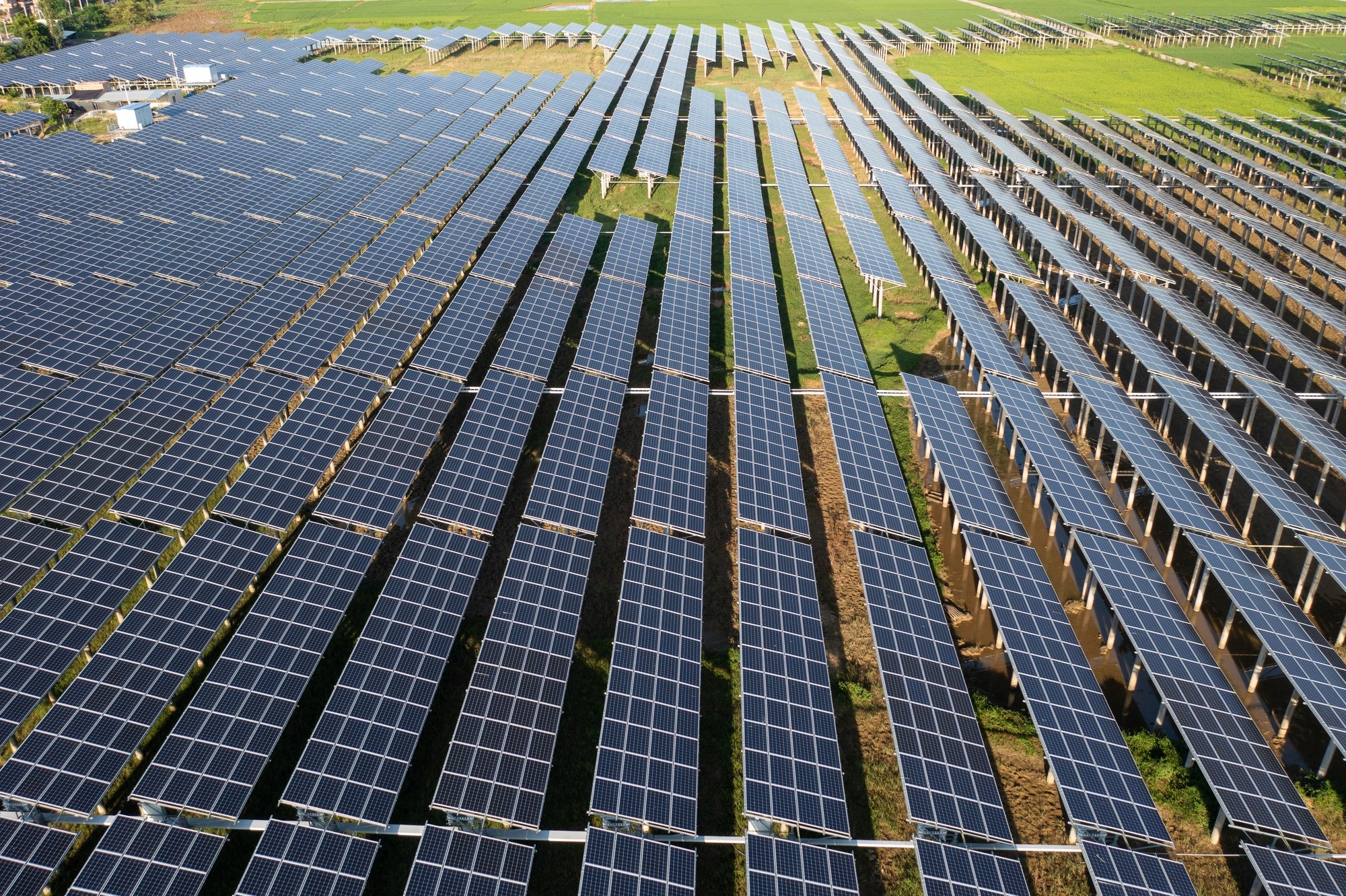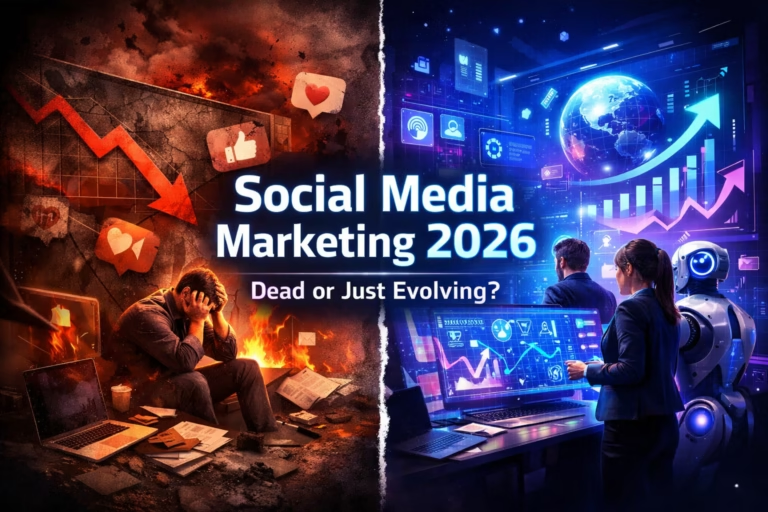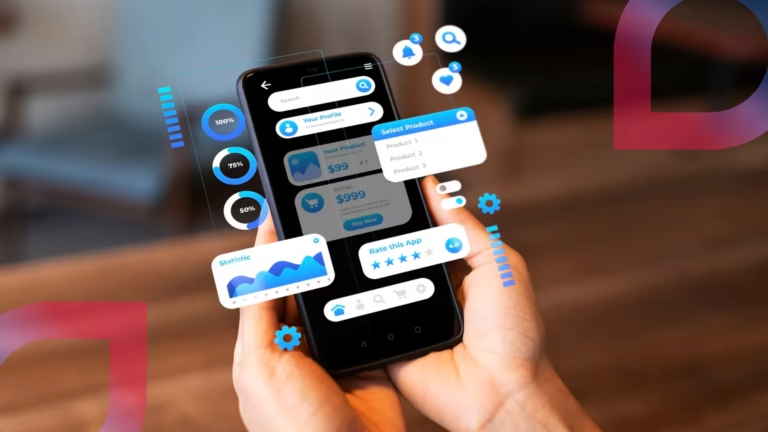
Introduction to Digital Marketing in the Energy Sector
The landscape of digital marketing encompasses a variety of practices designed to leverage the power of the internet for business growth. For energy companies, which often face unique challenges such as regulatory scrutiny, fluctuating market demands, and public perception issues, embracing digital marketing services has become increasingly critical. In a world where consumers are more informed and connected than ever, the digital realm offers energy companies new avenues to reach their target audiences effectively.
Digital marketing services encompass a wide range of activities, including search engine optimization (SEO), social media marketing, content creation, and pay-per-click advertising. Each of these strategies can play a vital role in promoting energy solutions, fostering customer engagement, and enhancing brand awareness. In the energy sector, where competition is becoming more intense, companies that harness these digital marketing tools are positioned better to capture market share and cultivate customer loyalty.
Moreover, the energy sector faces distinct challenges, such as the need to communicate technical information clearly and the importance of building trust with a sometimes skeptical audience. Digital marketing provides energy companies with innovative ways to address these challenges effectively. Companies can use informative content to educate potential customers about renewable energy options, energy efficiency strategies, and sustainability initiatives. This approach not only showcases the company’s expertise but also positions it as a leader in the energy transition.
In addition to overcoming challenges, digital marketing services present numerous opportunities for energy companies. By utilizing data analytics tools, companies can gather insights into consumer behavior, making it possible to tailor marketing strategies that resonate with their audience. Furthermore, engaging with customers through social media platforms can foster a two-way communication channel, cultivating a community around energy solutions that aligns with contemporary values of sustainability and environmental responsibility.
Understanding the Energy Market and Consumer Behavior
The energy market is experiencing a transformative era driven by an array of factors, including technological advancements, regulatory changes, and shifting consumer expectations. As traditional energy sources face intensified scrutiny, there is a marked transition towards renewable energy solutions. This shift not only affects energy production but also reshapes customer preferences. A significant demographic, particularly millennials and Gen Z, shows a pronounced inclination towards sustainability and eco-friendliness. They are more likely to engage with brands that prioritize renewable energy initiatives in their offerings.
Moreover, regulatory frameworks are adapting to this new landscape, often incentivizing companies to incorporate green technologies. This evolution emphasizes the need for energy companies to stay informed about statutory guidelines and market opportunities. Understanding these regulations can play a crucial role in shaping marketing strategies and developing products that resonate with eco-conscious consumers. Companies must leverage these insights to design and promote digital marketing services that align with such regulatory requirements as part of their broader strategy.
An analysis of consumer behavior in the energy sector indicates that marketing efforts must be tailored to individual preferences and values. Research has shown that targeted campaigns can significantly enhance engagement and conversion rates. For instance, energy companies can utilize data analytics to understand customer segments, allowing them to offer customized solutions that specifically meet users’ needs. By harnessing insights into demographic behaviors and preferences, companies may create personas that guide the direction of their marketing strategies, enabling them to effectively reach potential clients.
This focused approach to understanding the market landscape and consumer behavior is essential for energy companies looking to thrive in a competitive environment. Tailoring digital marketing services to align with evolving consumer preferences will not only enhance brand loyalty but also ensure companies remain relevant as the energy market continues to evolve.
Key Digital Marketing Services for Energy Companies
In an era marked by technological innovation, energy companies must leverage digital marketing services to enhance their reach and engage effectively with their audience. One of the primary strategies that energy firms should focus on is Search Engine Optimization (SEO). This service improves a company’s online visibility in search engine results, making it easier for potential customers to discover their offerings. By optimizing their website content with relevant keywords related to energy solutions, companies can significantly increase organic traffic to their sites.
Social media marketing is another critical component of digital marketing for energy firms. With platforms like Facebook, Twitter, and LinkedIn, companies can connect with consumers, industry stakeholders, and potential partners more intimately. Through effective social media campaigns, energy companies can share valuable content, updates, and engagement initiatives, fostering a community around their brand while promoting their services. This engagement not only enhances customer loyalty but also drives referrals and inquiries.
Content marketing is particularly essential for energy companies. By creating informative articles, blogs, videos, and infographics centered on energy trends, sustainability practices, and innovations, these firms can position themselves as thought leaders in the industry. Valuable content not only educates consumers about energy services but also cultivates trust and encourages customer interaction.
Email marketing remains a highly effective channel for communicating with customers and leads. Through targeted email campaigns, energy companies can share newsletters, tips on energy savings, and updates on new services. This personal approach enhances customer retention and keeps the audience informed about the company’s offerings.
Additionally, pay-per-click (PPC) advertising can yield immediate results by placing energy companies at the top of search engine results when potential customers search for relevant services. This cost-effective method allows them to gain visibility in the competitive energy sector while effectively targeting specific demographics.
Building a Powerful Online Presence
In the ever-evolving landscape of digital marketing services, establishing a robust online presence is paramount for energy companies seeking to engage effectively with their audience. An impactful website serves as the cornerstone of this digital identity, necessitating a focus on essential elements such as website development, search engine optimization (SEO), and user experience design.
When developing a website, energy companies must prioritize clarity and ease of navigation. Potential customers should be able to access crucial information about services offered, sustainability initiatives, and company values without difficulty. Incorporating visually appealing elements, such as high-quality images and engaging graphics, can enhance the overall user experience, encouraging visitors to explore further. A well-structured website that showcases the company’s brand while offering valuable resources will foster trust and engagement among users.
Search engine optimization is another critical factor in building a powerful online presence. By employing targeted keywords related to energy services and industry trends, businesses can improve their visibility on search engines. This not only impacts organic traffic but also establishes a company’s authority within the energy sector. Utilizing local SEO strategies can further enable companies to connect with their immediate communities, driving both online and offline engagement.
User experience design should not be underestimated, as it directly influences a visitor’s journey on the website. Implementing intuitive navigation, fast loading speeds, and mobile responsiveness are all crucial aspects of effective digital marketing services that cater to the modern consumer’s expectations. In essence, an informative, engaging, and user-centric online platform will not only enhance brand perception but also serve as a valuable resource for customers seeking information about energy solutions.
Leveraging Social Media for Engagement and Awareness
In the contemporary landscape of digital marketing services, social media stands out as a powerful tool for energy companies seeking to enhance consumer engagement and brand visibility. Social media platforms such as Facebook, Twitter, LinkedIn, and Instagram offer unique opportunities for energy firms to connect directly with their audience, fostering a community centered around sustainable practices and energy awareness. By utilizing these platforms, companies can position themselves as industry leaders while promoting their commitment to sustainability and energy efficiency.
An effective strategy for energy firms involves crafting tailored content that resonates with their audience. This could include informative posts about renewable energy resources, tips for energy conservation, or the latest advancements in energy technology. Visual content, such as infographics and videos, can significantly increase user engagement, making complex energy-related concepts more accessible and appealing. Regular updates not only keep the audience informed but also stimulate conversation and interaction, reinforcing community ties.
Moreover, community management plays a crucial role in building trust and rapport with consumers. Energy companies should actively respond to comments and messages, addressing inquiries and concerns promptly. This two-way communication fosters a sense of belonging among followers and encourages them to share their experiences, which can further promote brand loyalty. Engagement can also be amplified through user-generated content, whereby consumers share their energy-saving initiatives or experiences with the company’s services, thus creating a broader outreach.
In addition to direct engagement, social media can be a powerful platform for promoting corporate social responsibility initiatives. Campaigns highlighting sustainable practices or community involvement will not only enhance brand image but also encourage consumers to participate actively in energy-saving efforts. By harnessing the capabilities of social media within their digital marketing services strategy, energy firms can effectively elevate awareness, drive consumer engagement, and ultimately contribute to a more sustainable future.
Content Marketing Strategies for Energy Companies
Content marketing has emerged as a vital component in the broader landscape of digital marketing services, particularly for energy companies seeking to engage and educate their customer base. The unique nature of energy consumption and its impact on everyday life means that companies can leverage content marketing to not only inform but also nurture brand loyalty. By providing customers with relevant and valuable content, energy companies can position themselves as trusted authorities in the industry.
There are several types of content that resonate particularly well with energy consumers. For instance, informative blogs can cover a range of topics, such as energy efficiency tips, renewable energy options, and regulatory changes that may affect consumers. When crafted effectively, these blog posts can help demystify complex subjects, making them more approachable for the average consumer. Additionally, infographics allow for the visualization of data, making statistics about energy consumption, savings, and environmental impacts easier to digest.
Video tutorials represent another effective content format, particularly for demonstrating how to implement energy-saving measures around the home. These can be easily shared across various platforms, increasing reach and engagement. Whitepapers, on the other hand, can provide in-depth insights into industry trends, making them invaluable resources for professionals and informed consumers alike.
Storytelling is a powerful technique in content marketing that can convert readers into loyal customers. By sharing case studies or testimonials that highlight real-life experiences while using energy services, companies can create an emotional connection with their audience. This fosters trust and encourages consumers to engage further with the brand. In an increasingly competitive market, employing effective content marketing strategies can set energy companies apart, enhancing both customer education and brand loyalty.
The Role of Analytics in Digital Marketing
In the rapidly evolving landscape of energy industries, the integration of analytics into digital marketing strategies has become essential for achieving competitive advantage. Digital marketing services rely heavily on data analytics to gauge the effectiveness of campaigns and make informed decisions. By tracking key metrics, energy companies can evaluate their promotional efforts, ensuring that resources are allocated efficiently.
One of the foundational aspects of leveraging analytics lies in measuring consumer behavior. Insights derived from website traffic, social media engagement, and content interaction provide a nuanced understanding of audience preferences. For instance, tracking bounce rates, time spent on pages, and conversion rates enables energy companies to identify what resonates most with their target audience. This analytical approach allows organizations to refine marketing campaigns, targeting specific demographics effectively and enhancing overall engagement.
Moreover, employing advanced analytical tools can significantly streamline the process of measuring campaign success. Tools such as Google Analytics, HubSpot, and social media insights offer comprehensive data on user interactions and campaign performance. These platforms empower energy companies to collect and analyze relevant information, ultimately informing strategic modifications. For example, A/B testing can be implemented to compare different marketing messages or visuals, thereby optimizing communication strategies to maximize user engagement and return on investment (ROI).
Additionally, predictive analytics is gaining traction in the energy sector, enabling companies to forecast trends and consumer demands based on historical data. This proactive approach aids in planning effective marketing initiatives that align with future energy consumption patterns. Overall, employing a data-driven mindset within digital marketing services can provide energy companies with the necessary tools to refine their strategies, enhance targeting capabilities, and ultimately achieve higher levels of success in a competitive marketplace.
Case Studies: Success Stories in Energy Digital Marketing
In the rapidly evolving landscape of the energy sector, several companies have leveraged digital marketing services to enhance their visibility and engagement. One notable case is that of Company A, a renewable energy provider that implemented a comprehensive digital marketing strategy. By creating informative content about solar energy solutions and using targeted social media campaigns, Company A increased its online presence. Within six months, the company witnessed a 40% increase in website traffic and a 25% growth in customer inquiries. This approach not only positioned them as thought leaders in sustainable energy but also drove significant conversions.
Another compelling example can be found in Company B, a traditional energy supplier that faced stiff competition from emerging renewable energy firms. To maintain market relevance, Company B opted for digital marketing services that focused on customer education and engagement. They developed an interactive website that featured energy consumption tips and an energy savings calculator. Their campaigns highlighted sustainability efforts, resulting in a noteworthy 30% engagement boost on social media platforms. Furthermore, the company reported a 20% reduction in customer churn rates, demonstrating the effectiveness of their digital initiatives.
Lastly, Company C, a niche player in the energy sector, found success through email marketing and personalized content targeting. By analyzing customer data, they tailored content that addressed specific client needs, which fostered deeper connections. This led to a remarkable 50% increase in email open rates and a 35% rise in click-through rates. The case of Company C illustrates how understanding customer behavior and preferences can significantly enhance the impacts of digital marketing services.
These case studies reflect how different approaches to digital marketing can yield substantial results in the energy industry. By embracing innovative strategies and prioritizing customer engagement, energy companies can navigate challenges and achieve considerable growth.
Conclusion: The Future of Digital Marketing in the Energy Sector
As the energy sector continues to evolve, the importance of digital marketing services becomes increasingly apparent. Energy companies face the dual challenge of addressing consumer demands for transparency and sustainability while navigating a competitive marketplace. The integration of innovative digital marketing strategies can provide these businesses with the tools necessary to engage their audiences effectively. This includes utilizing social media platforms, content marketing, and search engine optimization tailored to the unique needs of the energy sector.
Current trends indicate a shift towards more personalized and targeted marketing approaches, leveraging data analytics to understand consumer behavior better. This allows energy companies to develop campaigns that resonate with their audience’s values and preferences, fostering brand loyalty. Furthermore, the rise of renewable energy sources and a growing emphasis on sustainability will likely shape digital marketing strategies. Companies that showcase their commitment to environmental responsibility through their marketing efforts can capitalize on this trend, positioning themselves as leaders in the sustainable energy space.
Looking ahead, technological advancements such as artificial intelligence and machine learning will play a critical role in enhancing digital marketing services. By harnessing these technologies, energy businesses can optimize their marketing strategies, predict market trends, and deliver enhanced customer experiences. As digital channels continue to expand, energy firms must remain agile and responsive to the changing landscape. Embracing digital marketing as a foundational aspect of business strategy will not only ensure companies can compete effectively but also build strong relationships with their customers.
In conclusion, the future of digital marketing in the energy sector is promising and filled with potential for growth. Energy companies that proactively adopt and integrate these digital marketing services will likely experience enhanced visibility, improved customer connectivity, and sustainable growth in an ever-changing environment.








